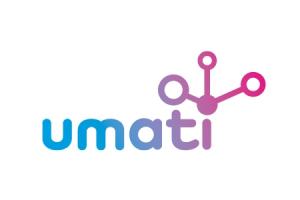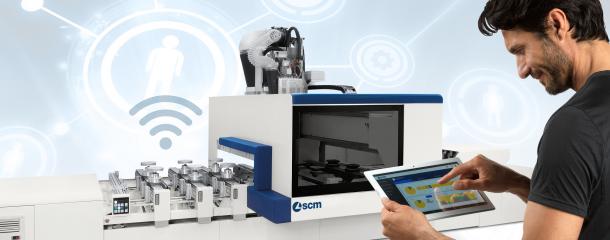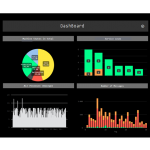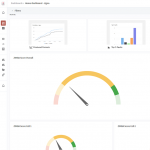IIoT - Industrial Internet of ThingsDevelopment of IoT ("Internet of Things") for cloud-based storage, control and optimization of optimization characteristics processes. Technical principleThe basic idea of IIoT is to make industrial processes more efficient and to give artificial intelligence to machines. To this end, machine data and process parameters are stored online and can usually be accessed in real time. Through automatic evaluating the recorded data, for example by means of machine learning, the observed processes can be optimised and any problems that arise can be detected at an at an early stage. Advantages and disadvantagesThrough using an IIoT solution, the efficiency and energy consumption of production processes can be improved, largely independent of Batch size. In addition, necessary services and maintenance work on the production plant can be identified and forecasted automatically. This increases the security the processes as well as the employees in the production environment. The use of IIoT technology leads to a shift in the required employee competence from simply operating the machine to the digital management of processes and the necessary hardware and software. For example, the Internet connection poses security risks that must be minimized, for example through regular updates. The data volumes involved also require a stable Internet connection with high bandwidth. IIoT solutions miscellaneous manufacturerMiscellaneous IIoT platforms are used in the woodworking industry. The platforms are generally not compatible with each other.
|
| |||||||||||||||
Images
Software




